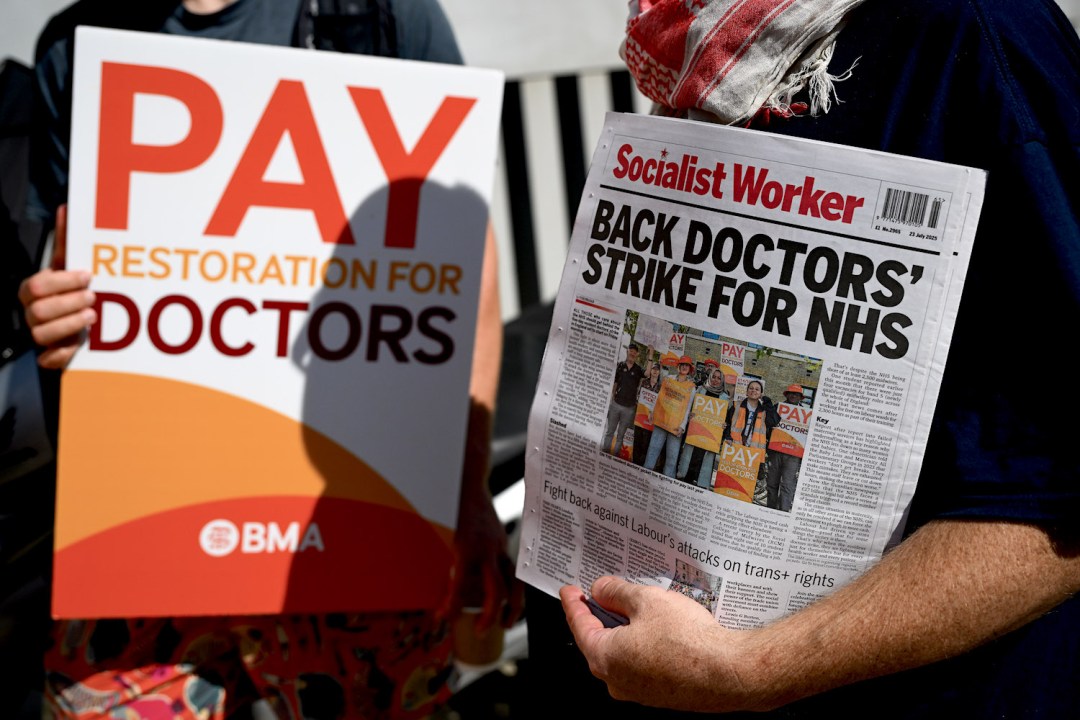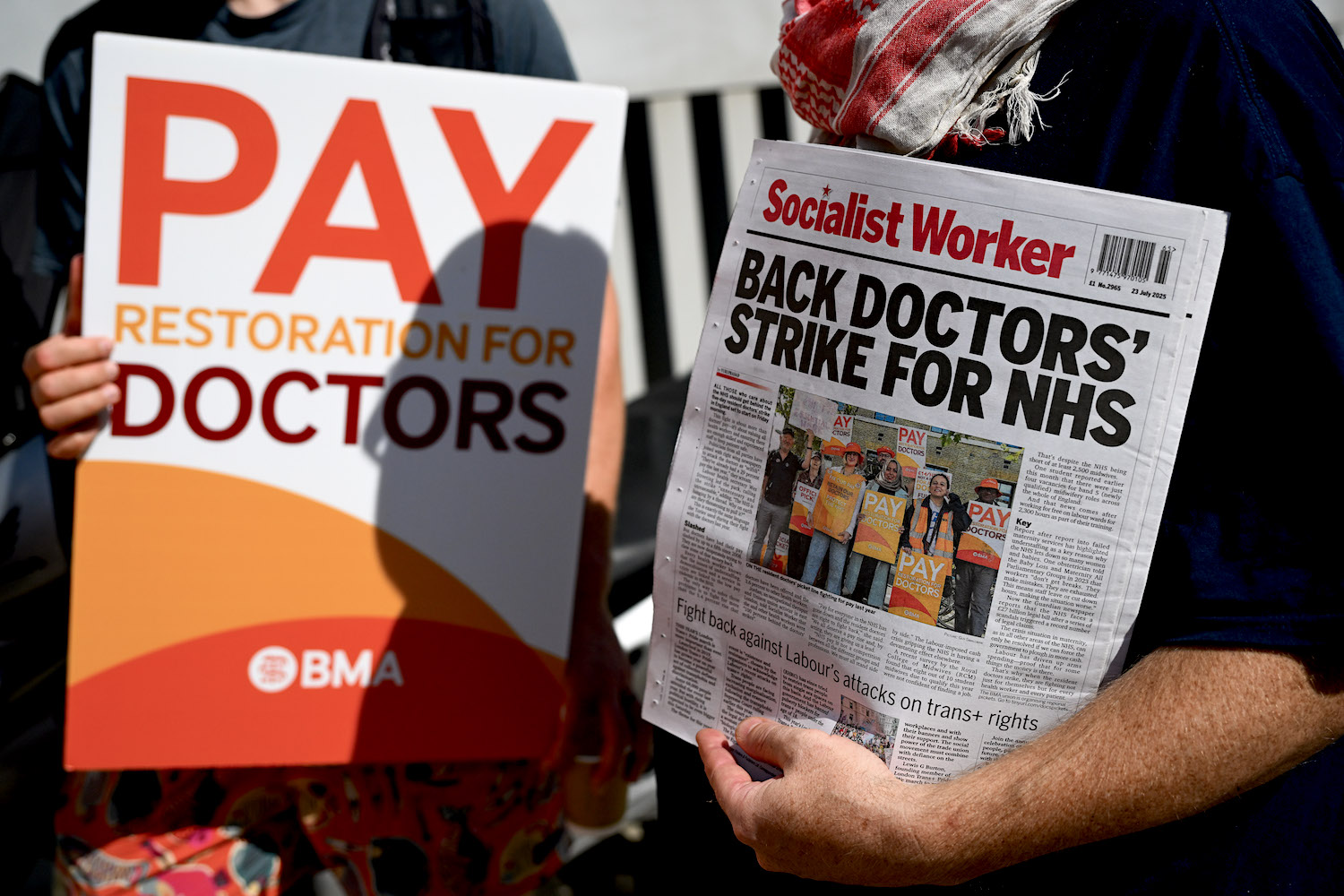Just a few weeks ago the trade union movement seemed to be on a high. It has got rid of its hated Tory government. Legislation which made it harder to call strikes had been hastily abolished by the incoming Starmer government. There were generous public sector pay rises all around. If you were a trade union leader, you had every right to feel pleased with yourself.
How things can change. As a trade union leader, you really don’t want a Labour health secretary calling your actions ‘unconscionable’, and suggesting that your members must ‘feel pain’ in order to discourage other unions from striking too. A Conservative health secretary, sure, but a Labour government is supposed to be on your side. Declare war on Labour and the result, as in 1979, is likely to be a government which is rather less to your taste.
Surely it must have dawned on the BMA’s trots that a Starmer government is as amenable an administration they’re likely to get. They might, at a scrape, get Angela Rayner as PM who could, perhaps, loosen the purse strings on public sector pay just a little bit more. But they are not going to get a red-blooded socialist government which seizes the means of production and turns it over to the workers.
Far more likely after Starmer is a right-leaning government which will want to clip the unions’ wings. What was the unions’ prize for helping to bring down the Callaghan government? Thatcher and the 1980 Employment Act which banned secondary picketing, brought the end of the closed shop, and imposed secret ballots on strike votes. It has taken 40 years for the unions to re-acquire anything like the power they had in 1979.
The unions have had an incredible deal out of the first year of Starmer’s Labour – far better than anything they got out of Blair. Its early public sector pay deals totally ignored the grim fiscal situation – even while Rachel Reeves was bleating about a £22 billion black hole and chopping back the winter fuel payment. Streeting followed up last year’s 22 per cent pay rise for resident doctors with an inflation-busting 5.4 per cent this year, which was about as far as he could possibly go without being totally fiscally irresponsible. On top of that, he offered to look at wiping some medical graduates’ student debt, providing they continued to work in the NHS. Yet still the BMA has gone ahead with a strike which is as long as any it held under the Conservatives.
If the BMA’s current behaviour is its way of showing gratitude, it is weird way of going about it. Its strategy looks like a death wish.









Comments